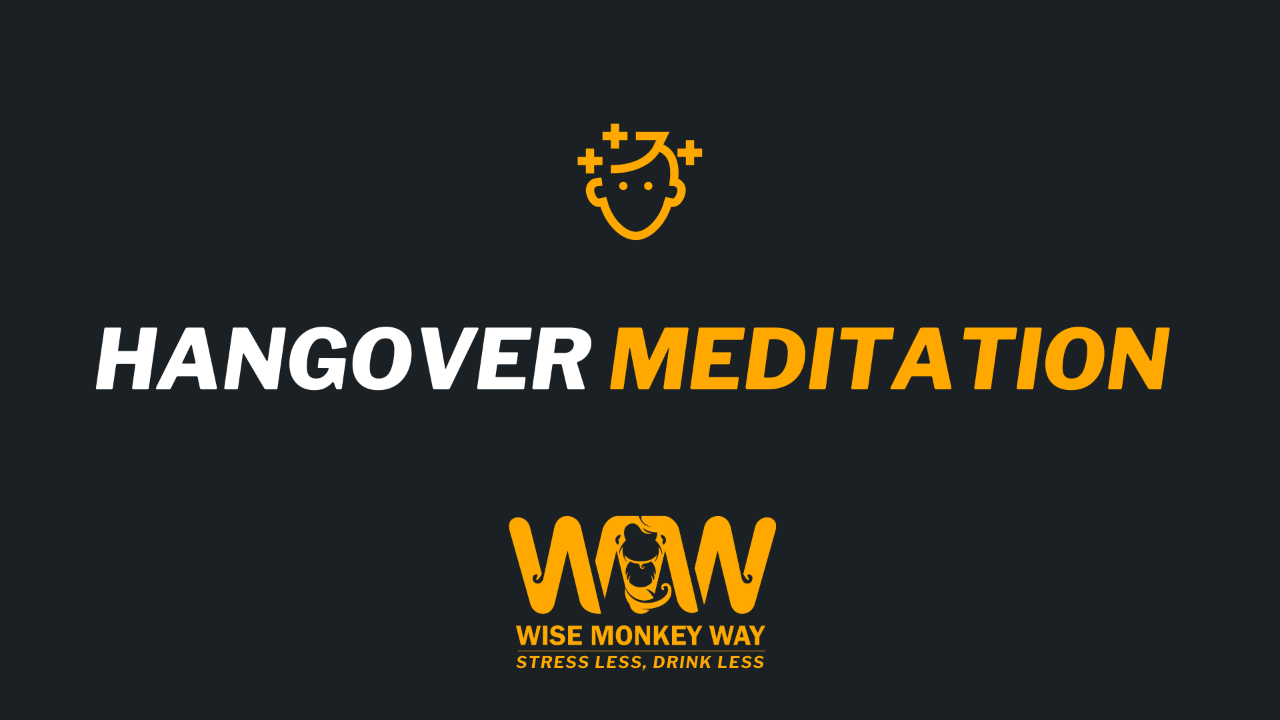Hangover meditation
Apr 13, 2023
Had a few too many drinks last night? If so, this meditation will have you feeling better in just a few minutes.There are physical as well as psychological and emotional components to a hangover. We can't help with the physical, but the following meditation will help ease some of the psychological and emotional parts.
Sit somewhere comfortable or lie down and let us clear away some of your worries.
We often have feelings of shame, guilt and regret when hungover which make us feel worse than we would have done. This meditation will help minimise the suffering aspect of hangovers. Don’t forget to drink lots of water to combat the dehydration!
How does meditation help with hangovers?
Meditation can be a helpful tool in dealing with the symptoms of a hangover. Hangovers often leave people feeling tired, irritable, and unable to focus. By practicing meditation, people can reduce stress levels, improve their mood, and increase their attention and focus. Additionally, meditation can help people cope with physical pain, such as headaches or muscle aches, which are common symptoms of a hangover.
When someone meditates, they are able to focus their attention on their breath or other objects, which can help calm their mind and reduce stress levels. This, in turn, helps reduce some of the physical symptoms associated with hangovers, such as stomach upset, anxiety, and irritability.
Overall, meditation can be a helpful tool for those dealing with hangovers. By reducing stress levels, improving mood, and increasing focus, meditation can help people manage the symptoms of hangovers and feel better overall.
How to deal with the physical effects of a hangover
1. Hydrate: Drink water or a sports drink to replenish fluids lost due to alcohol consumption.
2. Eat: Eat a meal rich in protein, carbohydrates, and healthy fats to help replenish nutrients.
3. Rest: Get plenty of rest to allow your body to recover.
4. Pain relievers: Over-the-counter pain relievers such as ibuprofen or acetaminophen may help with headaches and body aches. However, avoid taking them on an empty stomach.
5. Exercise: Light exercise such as a short walk may help increase blood flow and release endorphins, which can improve mood.
Alcohol is a diuretic, which means it increases the production of urine, leading to a loss of fluids and electrolytes in the body. Dehydration causes headaches, fatigue and dizziness.
Alcohol metabolism usually takes place in the liver, which converts it into acetaldehyde, a harmful toxin. Exceeding the liver's ability to metabolise alcohol leads to the accumulation of acetaldehyde in the body, causing nausea, vomiting and sweating. Alcohol also irritates the stomach lining, causing inflammation and acid reflux.
Added to this, alcohol can disrupt the body's normal sleep patterns, leading to fatigue and irritability. It can also suppress the immune system, making you more susceptible to infections.
What is hangxiety?
Hangxiety is a term used to describe the feeling of anxiety that many people experience after a night of heavy drinking. It is characterised by symptoms such as racing thoughts, restlessness, and feelings of dread or unease. Hangxiety can be caused by a number of factors, including alcohol's effects on the brain and body, dehydration, and disrupted sleep patterns. Some people are more prone to hangxiety than others, and it can be a significant problem for those who experience it regularly. Strategies for coping with hangxiety include staying hydrated, getting plenty of rest, and practicing relaxation techniques such as meditation.
Are you interested in finding out how to use meditation to stop drinking and using it as a tool for having less stress and therefore less reason to drink?
Sign up for our free mini masterclass to find out how meditation can help you drink less.
-----
Find out more
Reduce drinking through meditation
Start improving your life now. Meditate more, drink less.

